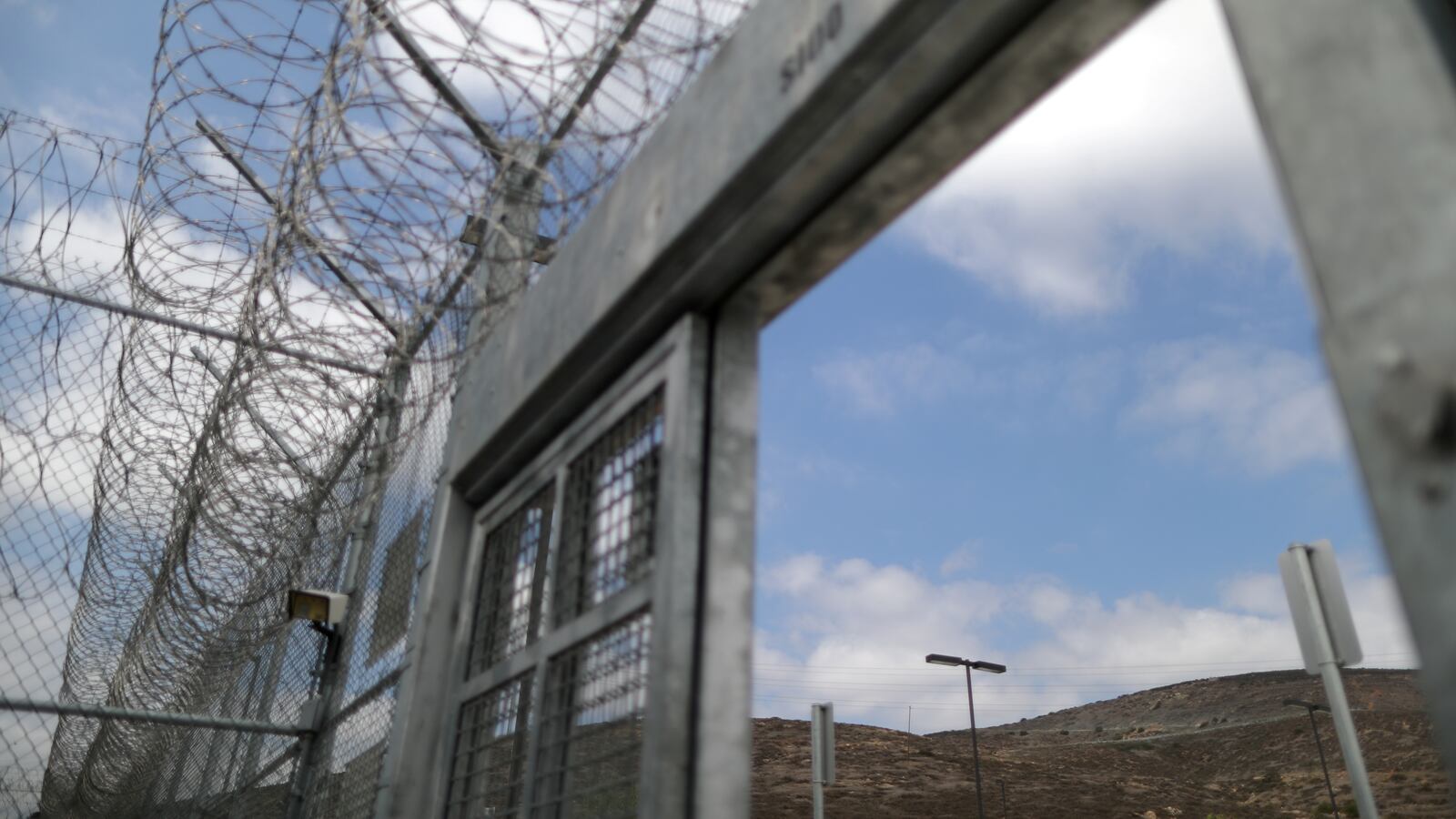Immigration officials want to force-feed a Russian detainee who has been on a hunger strike for two weeks and is rejecting medical attention.
Evgenii Ivanov, 41, has refused 51 meals while locked up at the Otay Mesa Detention Center in California and has lost at least 27 pounds, according to a filing in federal court.
It’s not clear why Ivanov, who was detained last November and is awaiting a deportation hearing next month, began a hunger strike on Aug. 4. There was no attorney listed for him in the court file.
In their petition to the court, first reported by the San Diego Union Tribune, immigration officials said they were obligated to stop Ivanov from hurting himself and expressed concern that if he died, tensions at the facility would flare.
ICE said a detention center doctor has explained to Ivanov that he could suffer permanent kidney damage, liver failure, heart failure, or death if he continues to refuse solid food.
“The patient has refused vitals signs, examination and lab work,” Dr. Melissa Astran wrote in a declaration. “Mr. Ivanov is drinking fluids, but he refuses to report his fluid intake or urine output to medical staff.”
Astran said Ivanov does not have any psychiatric condition that would cause him not to eat. He was overweight before the strike began but was down to 157 pounds by Aug. 18.
“I have personally explained to Mr. Ivanov my concerns regarding his condition and the medical risks involved,” Astran wrote.
ICE is asking the court to sign off on restraining Ivanov so medical staff can take his vital signs and perform blood tests—and then force-feed him, depending on the results.
Among the reasons ICE officials gave for the need to force-feed is that if Ivanov was to die, it could increase tensions at the facility.
“Perceptions the other ICE detainees, as well as other inmates at the Otay Mesa Detention Center, may form as a result of such an adverse event could lead to acts of inmate violence and disruption,” Assistant Field Director James Dobson wrote in a declaration.
“Other detainees may conclude that medical staff simply let the detainee die, without doing anything to save his life. Some detainees would almost certainly and quickly form such a conclusion. This could easily lead to acts of disruption, i.e., work stoppages, food strikes, etc., and violence by detainees acting either alone or in groups. I am concerned that these acts will be directed against staff (including medical staff) or against institutional property, to express detainees’ anger, resentment, and frustrations.”
Dobson said Ivanov’s death could also spur copycat strikes.
“For an inmate to cause his own death without staff intervention would thwart the obligation of staff to render appropriate medical care and prevent inmate suicides. Other inmates might then decide to commit suicide by starving themselves to death,” he said.
The court granted a request by the government for a temporary order in the case and plans to hold a hearing on the matter on Friday.
“The Court finds that Plaintiff is likely to succeed in showing that its interests in preserving life and discharging its duties to care for those in its custody outweigh any interest Defendant might have in expressing himself through a hunger strike,” Judge Dana Sabraw wrote.
The force-feeding of ICE detainees is not new. As the Associated Press reported in January, immigrant officials used nasal gastric tubes to feed six detainees at the El Paso Processing Center, with court approval.
An ACLU attorney in San Diego told The Daily Beast that the government should “respect the First Amendment rights of people subject to ICE detention to expose the conditions of their confinement.”
“If ICE is concerned about the health and wellbeing of an individual on a hunger strike, the agency should address the grievances underlying the decision to strike,” Monika Langarica added. “ICE can and should exercise its discretion to release anyone from its custody who the agency cannot properly care for.”
Last month, an Arizona court ordered another Russian immigrant on hunger strike at a detention facility to be force-fed. According to authorities, Eugenii Glushchenko, 37, refused food for more than a month while he was waiting to be deported. His lawyers said the detainee was on the hunger strike over the government’s failure to treat his medical conditions, which are not listed in court filings.







